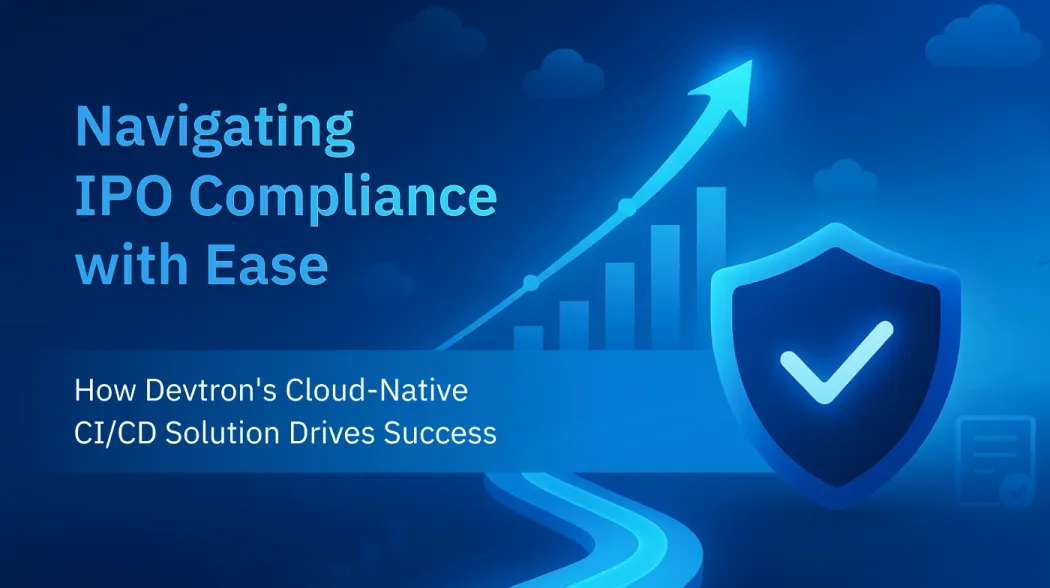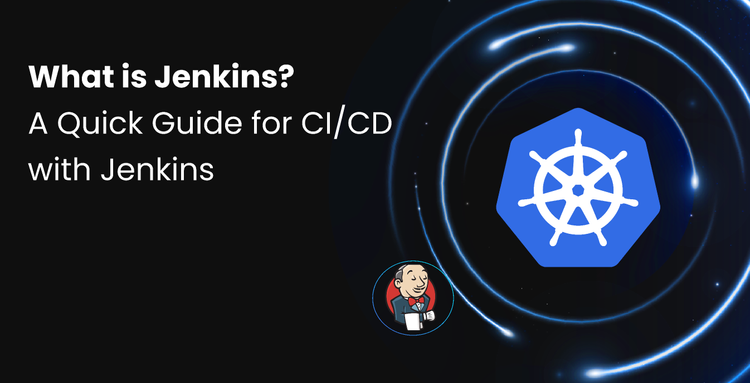As companies prepare for an Initial Public Offering, they face a gauntlet of regulatory scrutiny, demanding robust systems to ensure compliance, security, and operational transparency. From adhering to stringent financial reporting standards to safeguarding sensitive data, the journey to going public requires a technology stack that can withstand rigorous audits while maintaining agility. This is where Devtron, a cloud-native Software Delivery platform, steps in as a game-changer. With its comprehensive suite of security and compliance features, Devtron empowers organizations to navigate the IPO compliance landscape with confidence, ensuring their infrastructure is audit-ready and investor-approved.
In this blog, we explore how Devtron’s cloud-native CI/CD solution drives IPO success through its powerful security and compliance capabilities, tailored to meet the demands of IPO readiness.
The IPO Compliance Hurdle
An IPO is a transformative milestone, but it comes with intense regulatory requirements. Regulatory bodies like SEC (in the U.S.) or the SEBI (in India) mandate transparency in financial operations, data security, and system reliability. Organizations must demonstrate that their infrastructure is secure, scalable, and compliant with industry standards, such as SOC 2, ISO 27001, or GDPR. Manual processes or fragmented tools can lead to compliance gaps, delayed deployments, or costly rework during audits: risks no IPO-bound company can afford.
Devtron addresses these challenges by providing a unified platform that automates and enforces compliance throughout the software development lifecycle. Its cloud-native CI/CD solution integrates seamlessly with Kubernetes, offering security and governance features that streamline the path to IPO readiness. Let’s dive into the key Devtron features that make this possible.
Devtron's Security and Compliance Features
1. Integrated Vulnerability Scanning and Policy Enforcement
Security is a top concern for IPOs, as regulators and investors dig into how companies protect their systems. Devtron's built-in vulnerability scanning checks container images, code, and dependencies for known issues before they hit production. Using tools like Trivy, it catches vulnerabilities early in the CI/CD pipeline, so teams can fix them fast.
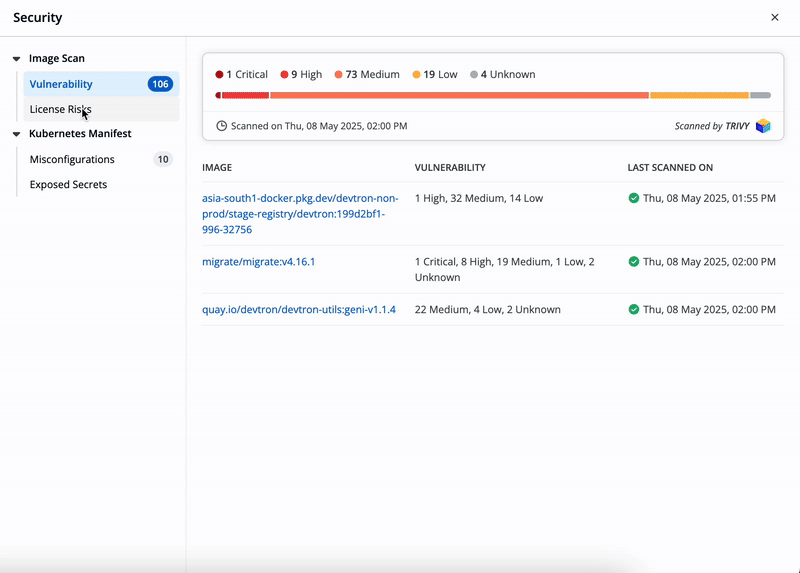
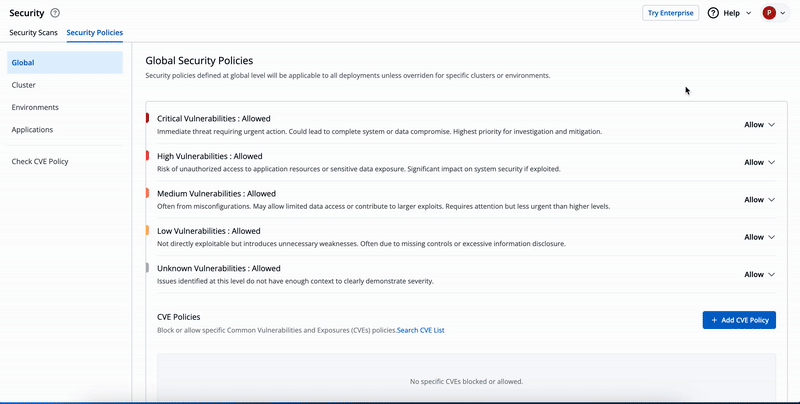
Beyond scanning, Devtron lets you set strict scanning policies. For example, you can block any image with critical vulnerabilities from being deployed. These rules are enforced automatically, so there's no room for oversight. This is a lifesaver during IPO audits, as it shows regulators your security processes are consistent and proactive, giving investors confidence in your infrastructure.
2. Tags Enforcement Policy
For companies preparing for an IPO, having a clear, organized, and traceable infrastructure is critical to meet regulatory expectations. Devtron's application tags enforcement policy enables this by mandating users to define specific tags, such as "business-unit: finance" or "project: core-app," which are further also propagated to Kubernetes resources as labels. These tags serve multiple purposes, including classification, cost tracking, and chargeback, offering a detailed view of how resources are allocated and utilized across a shared infrastructure such as a Kubernetes cluster.

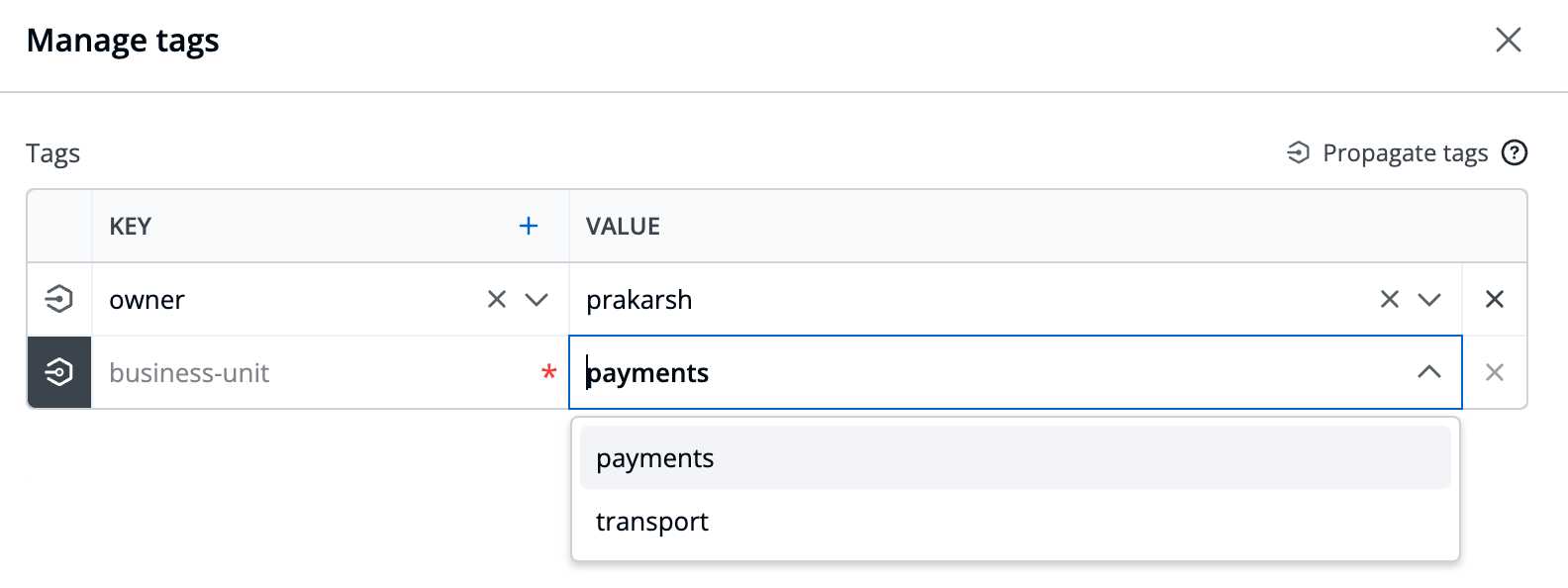
During an IPO, this feature is invaluable. The propagated labels make it easy to monitor and audit Kubernetes resources, enabling you to generate precise reports for cost management or compliance reviews. By showing regulators how your resources are organized and tracked, you demonstrate operational transparency and accountability. This level of visibility not only streamlines audit processes but also reinforces investor confidence in your ability to manage a scalable, compliant infrastructure.
3. Plugin Enforcement Policy
Consistency in deployments is a must for IPO-bound companies, where regulators scrutinize the integrity of your processes. Devtron's plugin enforcement policy ensures that approved and validated plugins are enforced in your CI/CD pipelines. By ensuring certain plugins are always included at designated steps of your pipelines, Devtron prevents bypassing of defined CI/CD patterns.
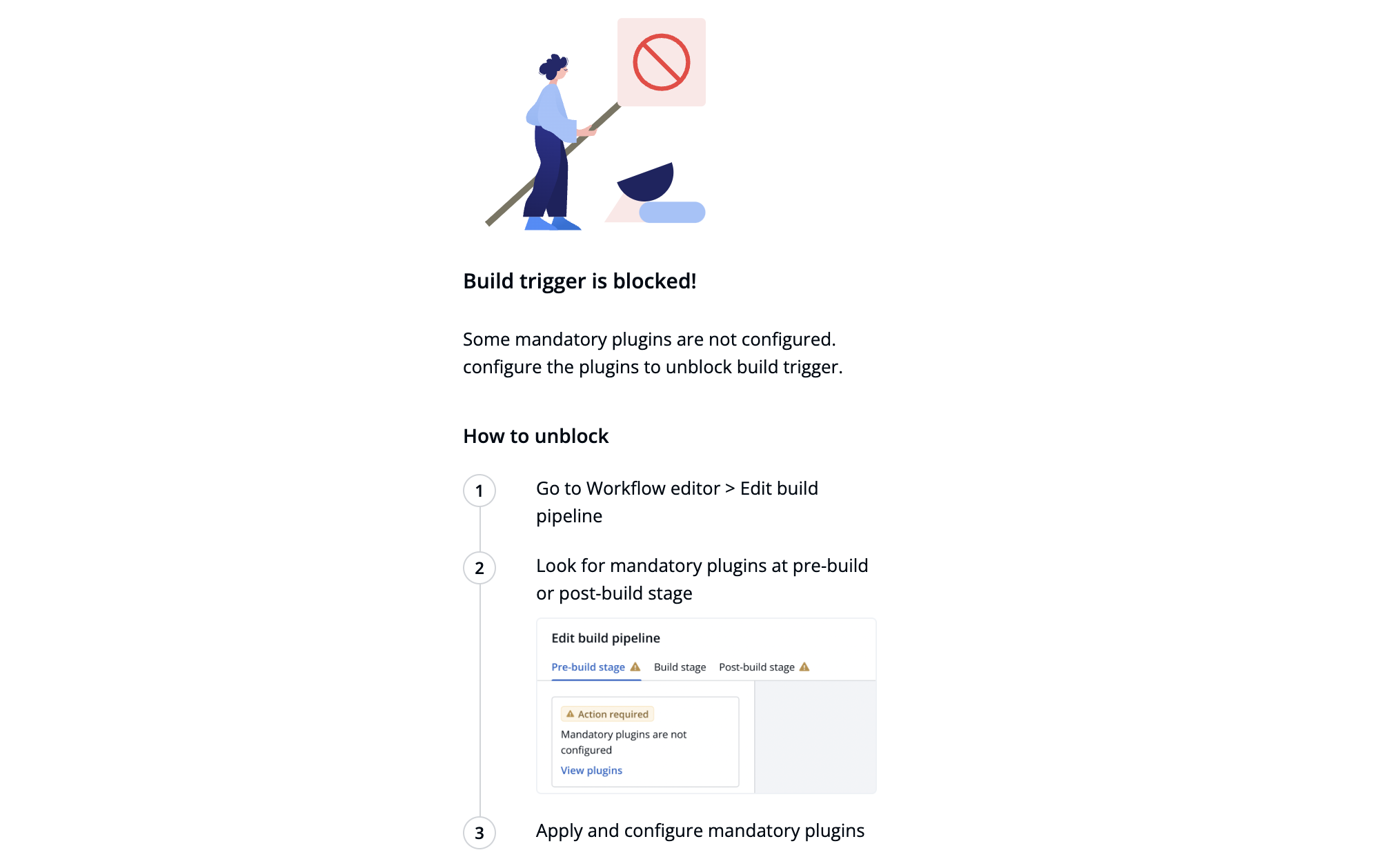
This tight control is essential during IPO audits, as it proves your deployment processes are standardized and secure, minimizing risks like circumventing standard steps within a CI/CD pipeline that could raise concerns with regulators. This feature strengthens your compliance posture, showcasing a disciplined approach to software delivery.
4. Image and Configuration Approvals for Production
Production environments are the heart of an IPO-bound company’s operations, and any changes to these systems must be tightly controlled. Devtron's approval system requires explicit sign-off for container images and configuration changes before they go live. You can set up multi-step approvals, like requiring a security team or a compliance officer to greenlight the changes.
This creates a clear chain of accountability, which is exactly what auditors want to see. It also means you can show regulators that only vetted, secure updates reach production, keeping your systems stable during the IPO process.
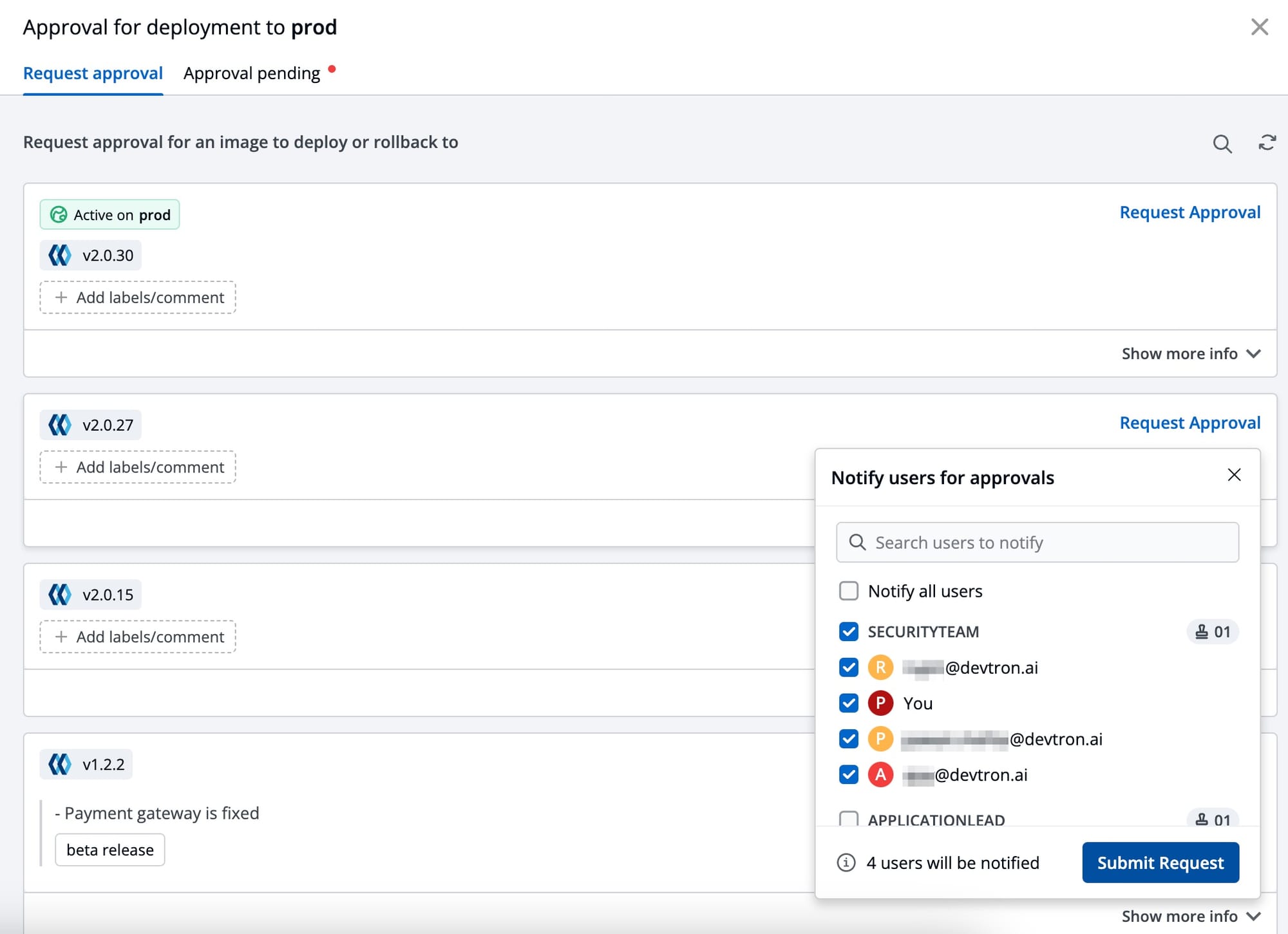
For this specific feature, Devtron team worked closely with Ather Energy’s team to collaborate and release a feature requiring a mandatory group’s (Security team’s) approval before taking any configuration changes into production.
5. Auditing of All Operations
Auditability is non-negotiable for IPO compliance. Regulators require detailed records of all system operations, including deployments, configuration changes, access events, and deletions. Devtron’s comprehensive audit trails capture every action performed within the platform, creating a tamper-proof log of activities.
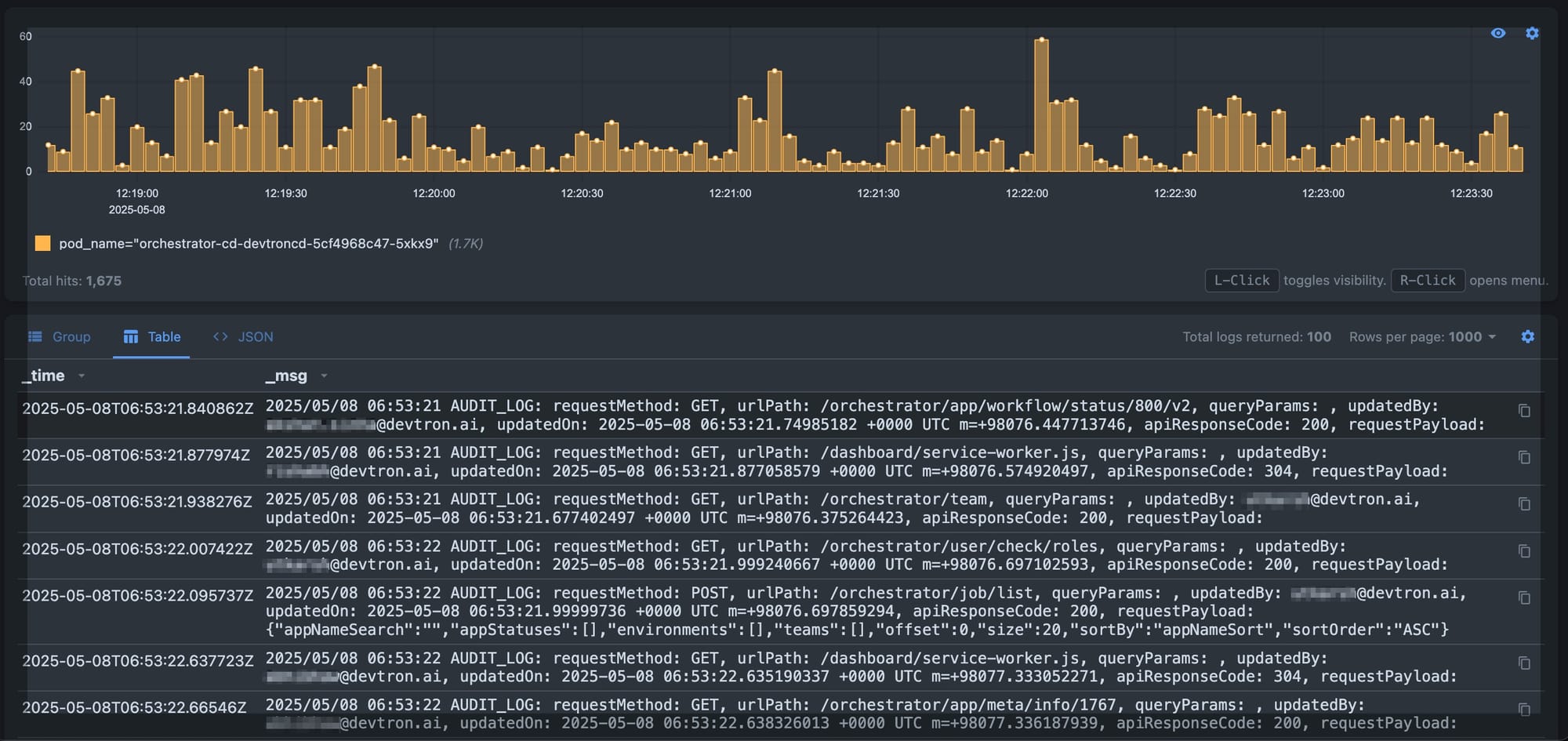
Whether it’s a developer deploying a new microservice, an admin modifying a Kubernetes cluster, or a user accessing sensitive resources, Devtron records the who, what, when, and how of each operation. These logs are easily accessible for audits, enabling companies to demonstrate compliance with regulatory frameworks. The audit trails can also be ingested into a SIEM for further analysis.
For instance, during a SEBI audit, a company can present Devtron’s audit logs to verify that all changes were authorized and aligned with security policies, bolstering investor trust.
6. Fine-Grained Access with SSO
Controlling access to systems is a cornerstone of IPO compliance, as unauthorized access can lead to data breaches or operational disruptions. Devtron’s fine-grained access control, integrated with Single Sign-On (SSO) providers like Google, GitHub, Microsoft, Okta, and Azure AD, empowers organizations to enforce role-based access policies across teams and projects. This feature also enables organizations to implement the principle of least privilege, ensuring only authorized individuals with relevant roles gain access to specific systems or environments.
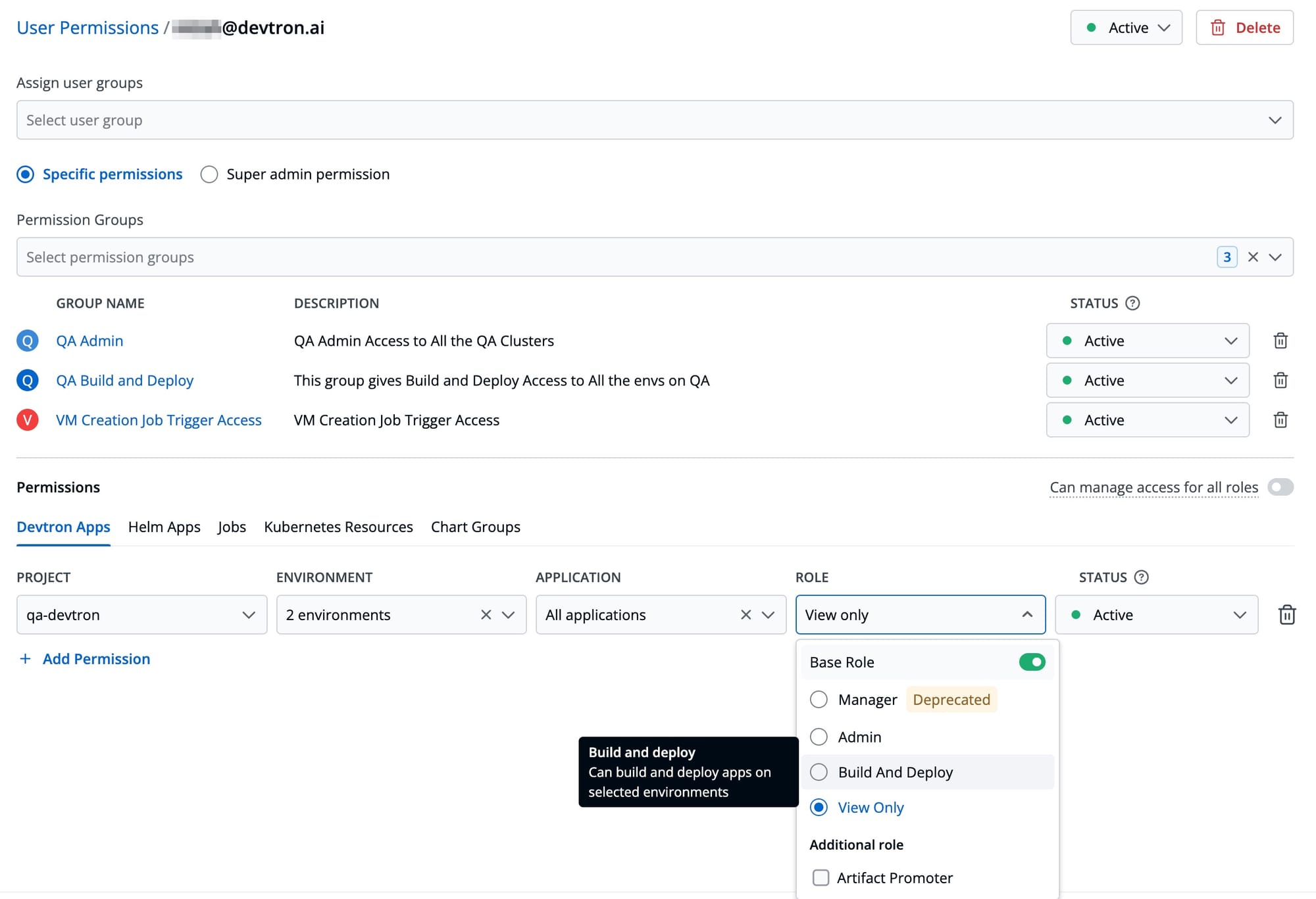
With Devtron, companies can define precise permissions, such as allowing developers to deploy to staging environments while restricting production access to senior DevOps, engineering managers, or release teams. SSO integration streamlines user management, enhances security, and ensures traceability. This robust access control is invaluable for IPO-bound companies, demonstrating to regulators that sensitive systems are safeguarded against unauthorized access, aligning with standards like ISO 27001.
7. Cluster and Application Cataloging with Dependency Mapping
For companies navigating the complexities of an IPO, having a clear and detailed view of their infrastructure is critical to meeting regulatory requirements and proving operational reliability. Devtron’s cluster and application cataloging paired with application dependency mapping delivers a powerful solution to manage and document your Kubernetes environment, ensuring compliance and transparency.
- Cluster Cataloging: Devtron enables you to catalog your Kubernetes clusters with essential details, such as cluster backup policies, API endpoint accessibility, teams utilizing the cluster, available Ingress Classes, Nodegroup types, and networking or connectivity options. This centralized repository of cluster information provides a single source of truth, making it easier to monitor and manage your infrastructure. During IPO audits, this catalog serves as a clear, auditable record of your cluster configurations, demonstrating to regulators that your environment is well-organized and secure.
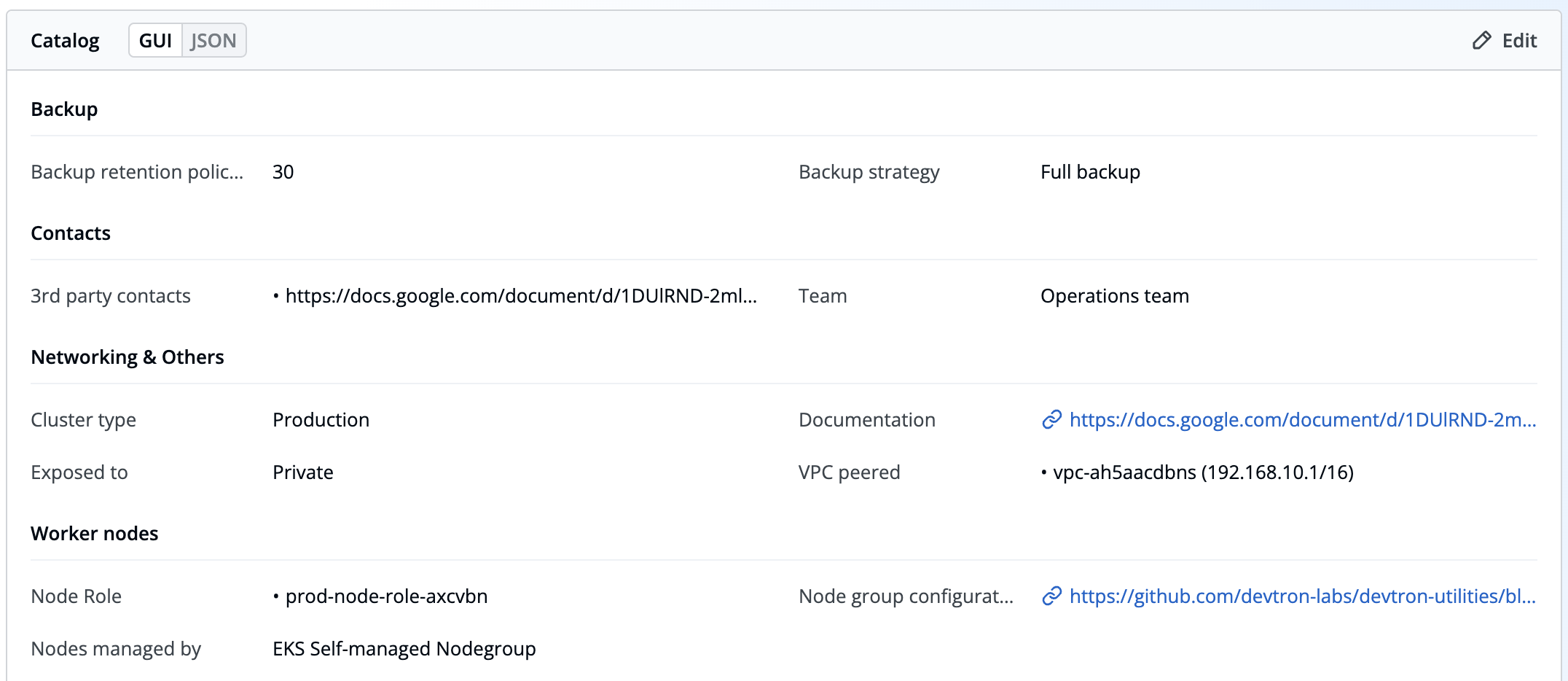
- Application Cataloging: Devtron’s application cataloging captures critical metadata about your applications, including API contracts, application owners, external services used, and the programming languages and frameworks employed. This detailed inventory helps teams maintain oversight of their application landscape, ensuring all components are documented and compliant. For IPO preparation, this feature allows you to present a thorough overview of your application ecosystem, addressing regulator questions about system dependencies and ownership with ease.
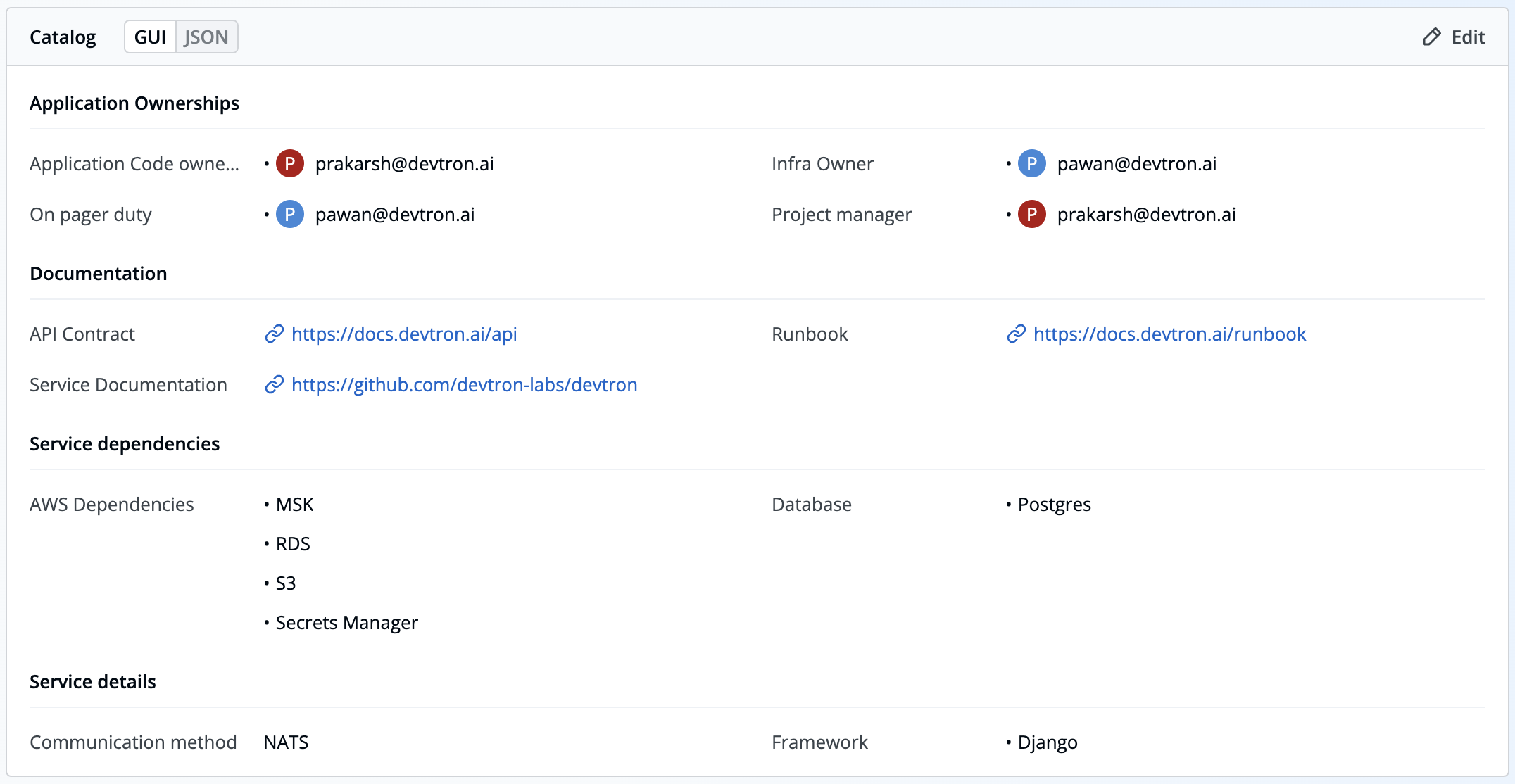
- Application Dependency Mapping: Devtron’s dependency mapping goes deeper by linking upstream and downstream applications, tracking their health, identifying deployed container images, and recording who deployed them. This visibility helps teams pinpoint risks, such as an application relying on a vulnerable image or an unhealthy service, before they escalate into compliance issues. During an IPO, this feature enables you to showcase a resilient, well-monitored infrastructure, providing regulators and investors with confidence in your ability to manage complex dependencies as a public company.
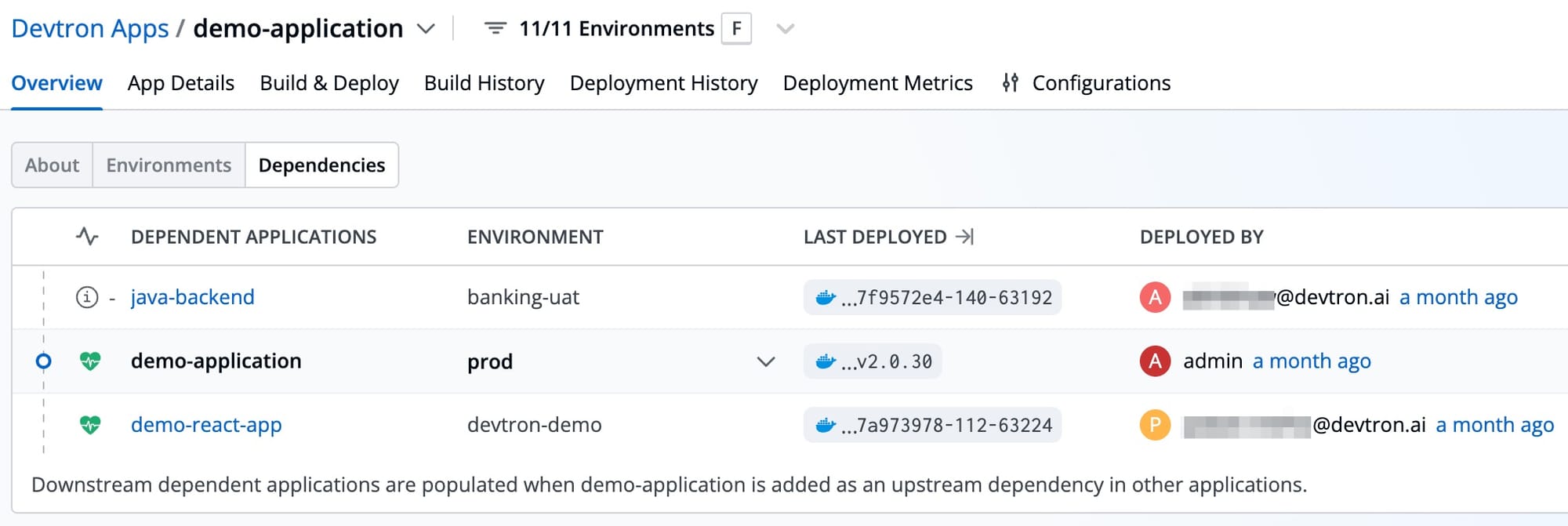
Together, these capabilities create a comprehensive, audit-ready view of your infrastructure. By cataloging clusters and applications while mapping their dependencies, Devtron empowers you to proactively address risks, streamline compliance, and demonstrate operational maturity, ensuring your infrastructure is ready for the public market spotlight.
8. Blackout and Maintenance Windows
Stability during critical periods is non-negotiable for IPO-bound companies, as unplanned changes can disrupt operations and raise red flags during audits. Devtron’s blackout and maintenance windows feature allows you to define specific timeframes during which deployments, configuration changes, or other disruptive actions are restricted. For example, you can set a blackout window during financial reporting periods or investor roadshows to ensure production environments remain untouched, maintaining system reliability when it matters most.

Maintenance windows complement this by enabling you to schedule planned updates or infrastructure changes during low-impact periods, with clear notifications to relevant teams. This controlled approach minimizes downtime risks and ensures compliance with regulatory expectations for operational stability. During IPO audits, the ability to demonstrate disciplined change management through blackout and maintenance windows reassures regulators and investors that your infrastructure is robust and predictable, reinforcing trust in your readiness for public markets.
Why Devtron Shines for IPO Compliance
Devtron’s cloud-native CI/CD solution is uniquely positioned to support IPO-bound companies because it combines security, automation, and auditability in a single platform. Unlike fragmented toolchains that require complex integrations, Devtron provides a unified interface that bridges Development, DevOps, and compliance teams. Its Kubernetes-native approach ensures scalability, while its compliance features such as Vulnerability scanning, policy enforcement, approvals, auditing, access control, and cataloging, address the regulatory demands of going public.
By automating repetitive tasks and enforcing consistent policies, Devtron reduces the risk of human error, accelerates compliance processes, and frees up teams to focus on innovation. For companies under the intense scrutiny of an IPO, this balance of agility and governance is a competitive advantage, showcasing operational maturity to investors and regulators alike.
Real-World Impact: A Path to IPO Success
Imagine a fast-growing tech company preparing for an IPO. Its engineering team is racing to scale its cloud-native applications, while the compliance team is under pressure to meet regulatory deadlines. With Devtron, the company automates vulnerability scans, enforces secure configurations, and maintains detailed audit logs, ensuring that every deployment is compliant and auditable. Approvals for production changes are streamlined, access is tightly controlled via SSO, and dependency mapping reveals potential risks before they escalate. When auditors arrive, the company presents a clear, documented record of its processes, earning praise for its robust infrastructure.
This scenario illustrates how Devtron transforms the IPO compliance journey from a daunting challenge into a manageable, efficient process. By embedding security and governance into the CI/CD pipeline, Devtron empowers organizations to confidently navigate the path to public markets.
Partner with Devtron for Your IPO Journey
As companies prepare for an IPO, the stakes are sky-high. Regulatory compliance, system security, and operational transparency are non-negotiable, and choosing the right technology partner can be a game-changer. Devtron’s cloud-native CI/CD solution, with its robust security and compliance features, is built to help organizations navigate their IPO compliance journey with confidence. Trusted by companies like Delhivery and Ather Energy during their IPO processes, Devtron has proven its ability to deliver audit-ready, investor-approved software delivery process.
From integrated vulnerability scanning to fine-grained access control, Devtron provides the tools to build an audit-ready, investor-approved infrastructure. Ready to see how Devtron can drive your IPO success?
FAQ
What is IPO compliance in software development?
IPO compliance ensures a company’s software systems meet regulatory, security, and audit requirements needed for going public.
How does CI/CD help with IPO readiness?
CI/CD automates software delivery, enforces consistent processes, and ensures traceability, key for audit trails and regulatory checks.
Why choose a cloud-native CI/CD platform like Devtron?
Devtron offers built-in security, visibility, and governance features tailored for enterprise needs, making it easier to meet compliance standards
How does Devtron support compliance during scaling?
Devtron centralize control, enables policy enforcement, and provides logs and metrics that simplify audits and support secure, compliant scaling.
Explore Devtron’s Enterprise today or Schedule a demo with our team to learn more.

